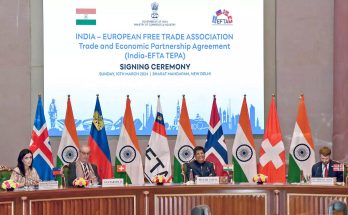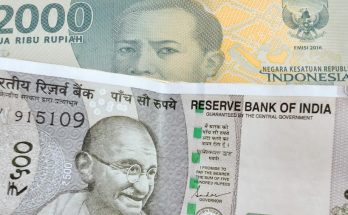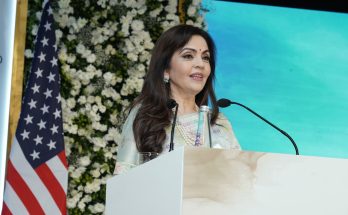 The recently concluded G-20 Summit in Australia saw India’s Prime Minister Narendra Modi strongly pitch for a new global standard on tax disclosure information to tackle the issue of unaccounted money.
The recently concluded G-20 Summit in Australia saw India’s Prime Minister Narendra Modi strongly pitch for a new global standard on tax disclosure information to tackle the issue of unaccounted money.
Mr. Modi’s stress on greater transparency on information of funds lying in the tax havens was aimed at recovering domestic black money from foreign shores. Speaking at the summit of the world’s top economies in Brisbane, Mr. Modi highlighted on the need for close coordination to tackle the black money issue. He also linked black money to emerging security threats like cyber security and issues like terrorism, drug trafficking and arms smuggling.
On the subject of unaccounted money, Mr. Modi pressed for automatic exchange of tax information with the tax havens, which was endorsed by the G20 summit in its joint communique. Automatic exchange of information allows the tax authorities to obtain comprehensive data about income earned by domestic residents in foreign banks. But information exchange upon request is a more common practice, a standard promoted by Organisation for Economic Cooperation and Development (OECD).
Tax havens provide corporations and individuals with opportunities to avoid or evade taxes. There are 13 major tax havens including Switzerland, the Cayman Islands and Luxembourg.
The outcome of Mr. Modi’s pitch on the new global treaty, for India, will become clearer as time unfolds. Much depends on whether the treaties are properly drafted and enforced. If that is not the case, then the tax evaders simply shift deposits in response to treaties. Sham corporations get set up to sign the treaties. Back home, it might still be difficult to gather compelling evidence on tax evasion so as to ask for information from haven countries.
An alternative to exchange of information between countries, apart from the automatic route, is through request. However, it has been noticed that convincing tax havens to sign information exchange treaties may not be easy. Earlier, the OECD tried to do so; but the desired progress remained elusive. It was only in 2009 when the G20 forum threatened to impose economic sanctions on non-compliant havens that a frenzied response kicked in; between the summit in April 2009 and the end of 2009, the world’s tax havens signed more than 300 treaties. The act, at the time, was hailed by policy-makers as the end of the “era of bank secrecy.” However, it turned out to be a short-lived rapture as the pace of treaty signature considerably slowed down after 2010. These realities, too, must be taken into account by Mr Modi’s government.
Promising G20 Debut
Mr. Modi’s promising debut in the G20 summit showed that India is ready for greater and active engagement on global issues. According to India’s external affairs ministry spokesperson Syed Akbaruddin, the G20 draft communiqué didn’t have reference to transparency on tax practices which was incorporated in the final communiqué after Mr. Modi’s strong intervention.
Further, the forum committed to commence the stalled Doha Round of WTO talks. India recently successfully pushed through its demand on freedom to subsidise food and pay minimum support prices to its farmers.
The G20 also addressed the issue related to climate change. India’s stand was that countries should work under the United Nation’s Framework Convention on Climate Change (UNFCCC).
The Brisbane Action Plan, released at the end of the two-day summit, comprises a raft of measures for global growth, reformed economic resilience and shoring up financial institutions. The plan contains a package of more than 800 reforms.
The next G20 Summit is slated to be held in Turkey in 2015, followed by China in 2016.
THE BRISBANE ACTION PLAN: Highlights
Global Growth: Boost growth to deliver better living standards. A target to lift GDP by 2 per cent by 2018 for all the G20 nations has been set.
Infrastructure: To create a Global Infrastructure Initiative to spur investment in infrastructure across regions.
Trade: To lower costs of trade, reduce regulatory burdens and promote competition and innovation.
Gender equity: Reduce the gap in participation rates between men and women in the workforce by 25 per cent by 2025.
Youth Unemployment: Create plans to get more youth in jobs and encourage entrepreneurship and apprentices.
Poverty: Increase investment in food supply systems and increase jobs.
Financial Systems: Strengthen financial systems by making derivatives markets safer.
Institutions: Create a strong trading system through bilateral and regional agreements to deliver growth and jobs.
Energy: Improve efficiency of energy markets and access to energy for those who don’t have it.
Ebola: Call on international institutions to assist countries in dealing with economic impacts of Ebola.
Author Profile
- India Writes Network (www.indiawrites.org) is an emerging think tank and a media-publishing company focused on international affairs & the India Story. Centre for Global India Insights is the research arm of India Writes Network. To subscribe to India and the World, write to editor@indiawrites.org. A venture of TGII Media Private Limited, a leading media, publishing and consultancy company, IWN has carved a niche for balanced and exhaustive reporting and analysis of international affairs. Eminent personalities, politicians, diplomats, authors, strategy gurus and news-makers have contributed to India Writes Network, as also “India and the World,” a magazine focused on global affairs.
Latest entries
 In ConversationJuly 26, 2024India-Italy defence collaboration can extend to third countries: Anil Wadhwa
In ConversationJuly 26, 2024India-Italy defence collaboration can extend to third countries: Anil Wadhwa In ConversationJuly 23, 2024Italy views India as a key partner in Indo-Pacific: Vani Rao
In ConversationJuly 23, 2024Italy views India as a key partner in Indo-Pacific: Vani Rao DiplomacyJune 29, 2024First BRICS unveils a roadmap for boosting tourism among emerging economies
DiplomacyJune 29, 2024First BRICS unveils a roadmap for boosting tourism among emerging economies India and the WorldJune 11, 2024On Day 1, Jaishankar focuses on resolving standoff with China
India and the WorldJune 11, 2024On Day 1, Jaishankar focuses on resolving standoff with China






